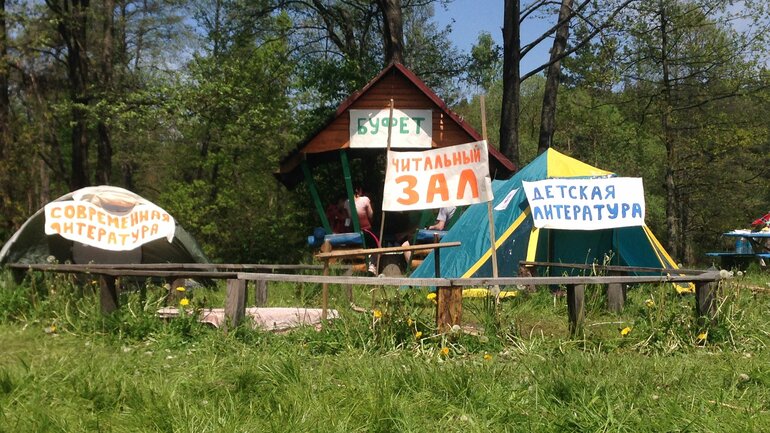Lukashenka’s regime: rooted in youth summer camps?

Every year, the Belarusian Republican Youth Union (BRSM), a contemporary mass-membership youth organisation that supports president Alexander Lukashenka, organises summer camps around the country for its thousands of young activists. The camps have their roots in communist-era recreational summer camps for children and youth, and continue to feature many Soviet-style activities. However, although the form of the camps now seems outdated, their purpose is very much up to date. In today’s Belarus, they are places where young people’s solidarity is forged into a political resource of the authoritarian government.
For the Belarusian leadership, managing young people’s political views and public engagement is especially important now, because Belarus is in the midst of a cycle of elections at a geopolitically critical moment. How do young people contribute to the government’s aim of legitimising these votes and ensuring that they go smoothly and predictably?
From playful recreation to a political resource
BRSM summer camps are collective camping trips for the organisation’s activists and usually last three days. Although there are some differences between the camps, most consist of recreational team-building activities. Usually, teams compete with each other playfully in sports and artistic tasks. In addition to team competitions, playing the guitar and singing songs around a campfire are important features of the camps.
Although the camps are designed to be primarily recreational, they also serve a serious political purpose. Established in 2002 with the explicit aim of ensuring youth support for Lukashenka, the BRSM has never enjoyed genuine widespread popularity among young Belarusians. A new study conducted by ZOiS confirms that the great majority of young people join the BRSM out of necessity, not free will. The combination of patronising patriotic rhetoric, a rigid hierarchical structure that allows for minimal bottom-up initiatives, and an explicit affiliation with a man who has been described as Europe’s last dictator makes the organisation an object of ridicule, especially among university students.
And yet, despite the stigma of active membership, the BRSM thrives in universities. Despite the often compulsory membership, a significant minority of young activists—perhaps a dozen people in each faculty, according to this author’s observations—are genuinely and voluntarily engaged in the organization. The rewards of activism explain part of the story, as activists are allowed to skip lessons to organise and attend events. And, at least in theory, their extracurricular activities could be interpreted positively by future employers.
However, the BRSM’s relative success is due not only to these tangible material and non-material benefits. The organisation can serve as a platform for self-realisation and a place to make friends. Summer camps, for their part, provide a rare chance for a free, fun adventure and an opportunity to hang out with other young people.
Peer solidarity and political legitimisation
In authoritarian Belarus, where civil society is severely restricted, the BRSM remains the only youth organisation in which young people’s participation is not just tolerated but endorsed by the authorities. The Belarusian government hopes to channel youth engagement to practices that contribute to the regime’s legitimacy—and thus to its stability—despite the fact that authoritarian leaders tend to prefer a demobilised society.
For the time being, the government’s strategy seems to be successful. Even if BRSM activists have a negative attitude towards the organisation’s overtly political activities, such as electoral campaigning in the name of regime-backed candidates, they continue to participate in them. They do so out of loyalty not to Lukashenka but to their peers. This loyalty within the organisation is generated during recreational activities, such as the summer camps. This is why the camps are so important and, despite their recreational outlook, thoroughly political.
Ideally, the summer camps contribute to legitimising the BRSM, making activism in the organisation more attractive for students. Organisation insiders are expected to promote engagement among their peers either implicitly or explicitly. Once people are connected through bonds of friendship, carrying out unpopular activities—such as turning a blind eye to vote rigging as an electoral observer—becomes easier.
As Belarus prepares for its next presidential election in August 2020, the government is once again relying on the mobilising support of the BRSM. Thousands of the organisation’s young activists will be staffing electoral committees and volunteering as external observers. These activities are fuelled not by cold cash or blind loyalty to the current political establishment, but by friendships forged around a summer campfire.
Kristiina Silvan is a PhD candidate at the University of Helsinki. Her PhD project studies government-affiliated youth activism in post-Soviet Belarus and Russia.